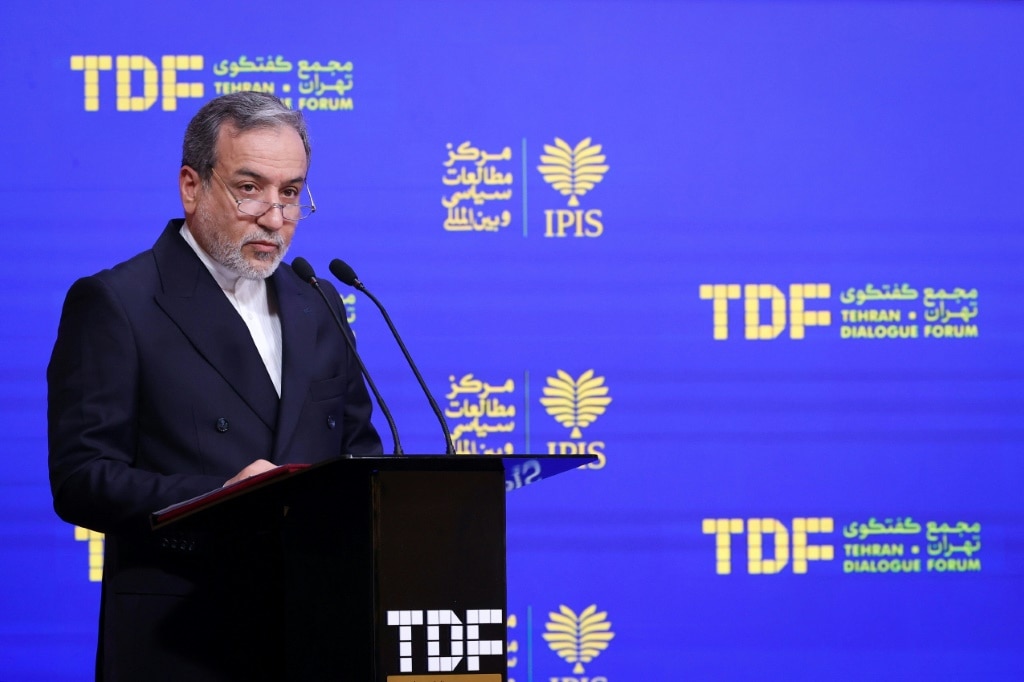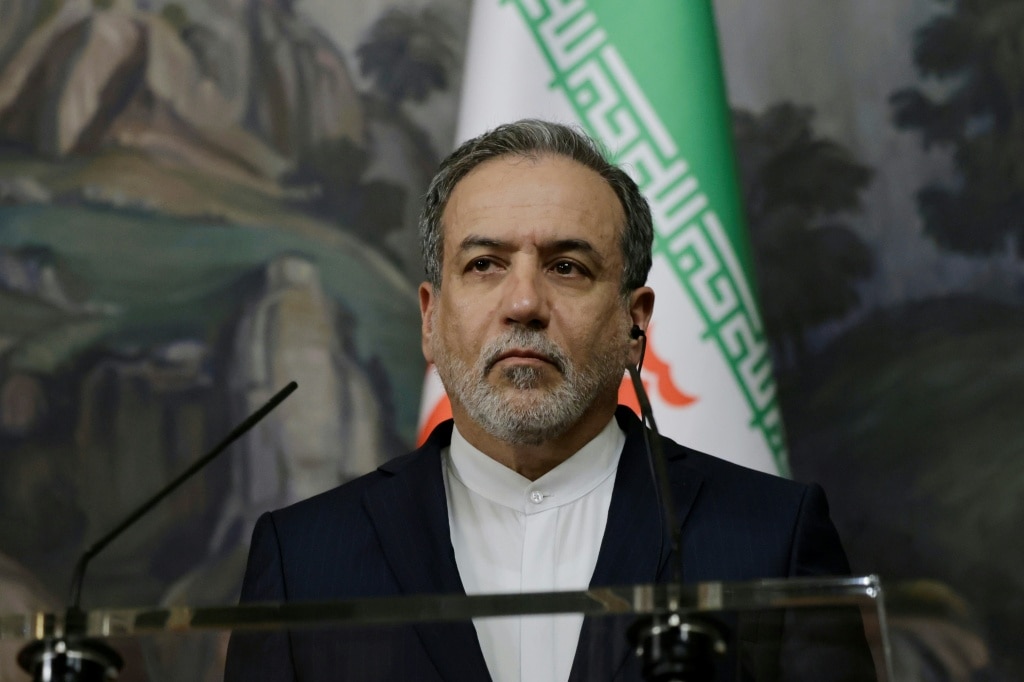Israel fears being boxed in by Donald Trump’s Iran talks
Israeli officials are concerned the Trump administration could agree to a nuclear deal that curtails the option of Israeli military action. What might Israel do in response?

Seven weeks into negotiations between the United States and Iran, Israeli officials are concerned the Trump administration could agree to a deal that doesn’t block Tehran’s ability to produce a nuclear bomb but curtails the option of Israeli military action.
That puts Israel in a bind with its most important ally on its most pressing national security question: the risk of a nuclear-armed Iran. Israel’s efforts to stiffen the US negotiating position and preserve the option for a military strike at Iran’s facilities have led to frustration at the White House.
President Donald Trump said on Wednesday he had warned Israeli Prime Minister Benjamin Netanyahu against taking actions – like a military strike – that could disrupt the talks between the US and Iran.
“I told him this would be very inappropriate to do right now, because we’re very close to a solution,” Mr Trump said during a press conference at the White House.
Mr Netanyahu has publicly expressed Israel’s concerns, warning that a bad deal is worse than no deal.
The nuclear negotiations began April 12, and the two sides have met five times, with the US represented by Trump special envoy Steve Witkoff and Iran’s team headed by its foreign minister. The two sides remain deadlocked for now over the Trump team’s insistence that Iran must give up the ability to enrich uranium.
Mr Trump has said repeatedly that he prefers a diplomatic solution to the standoff but that military options would be on the table if a deal can’t be reached. In a letter sent to Iran’s supreme leader in March, Mr Trump set a two-month time frame for negotiations to succeed, though administration officials have played down the idea of a strict deadline.

Many in Israel worry the Trump administration won’t stick to its red line on enrichment in its enthusiasm to reach a deal. Mr Trump himself has said he hadn’t decided on the matter. Witkoff said before the talks started that the US recognised both sides would need to make concessions for a deal.
“The fear is because Trump wants a deal and Iran can stall for time, we will end up with a deal that does not adhere to the zero enrichment principle,” said Avner Golov, a former senior director at Israel’s National Security Council who is now with MIND Israel, a national security advisory group.
European and former US officials who have negotiated with Iran are also sceptical the administration will be able to cut a deal that doesn’t allow Iran some capacity to enrich uranium.
For now, the US and Iran are working on a framework laying out the principles that would shape a deal. A senior US official said the US is preparing to give Iran a “term sheet” that would include an end to enrichment.
“If they don’t accept these terms, it’s not going to be a good day for the Iranians,” the official said.
Mr Netanyahu has said his government would back a deal that would end Iran’s nuclear fuel enrichment program. Iran, however, has insisted on the ability to enrich uranium as a core demand over two decades of nuclear negotiations.

The nuclear deal struck by the Obama administration in 2015 allowed Iran to continue enriching uranium but it put strict limits on its nuclear activities for 10 years in an effort to keep Tehran at least one year away from being capable of amassing enough nuclear fuel for a bomb. Mr Trump pulled out of the deal during his first term.
There is widespread agreement in Israel that the country needs to retain the right to act independently on Iran no matter what the outcome of the talks. Israel expanded its options last year by battering Iranian ally Hezbollah in Lebanon and taking out many of Iran’s air defences during unprecedented direct exchanges of fire between the countries. Those accomplishments would make it harder for Iran to defend against or respond to an attack.
Iran, however, has sped up its progress toward being able to produce a nuclear weapon. It has sharply increased its production of near weapons-grade enriched uranium, according to the United Nations’ atomic agency, and the US believes it could produce a rudimentary bomb in a few months.

Iran has been digging tunnels deep under its main Nantaz enrichment site. People with knowledge of Iran’s program say that work is far from complete, but eventually it could allow Iran to produce fuel for nuclear weapons out of reach of air strikes and resume its nuclear program in the wake of an attack.
Those efforts could make it more attractive to strike before they are finished – even if the nuclear talks were dragging on.

Some in Israel argue it should go ahead and attack Iran’s nuclear program even without US support, while the window of opportunity remains open. But that would alienate its key ally and be less effective or difficult to pull off without American military help – including vital American assistance in fending off any large-scale Iranian military response to an Israeli attack.
“Israel isn’t going to go for a military option without American agreement,” said Raz Zimmt, a senior researcher at the Tel Aviv-based Institute for National Security Studies. “So there is concern both that the agreement won’t be good enough and that we will miss another opportunity to take care of the nuclear issue more deeply.”
Washington’s hope, US officials said, is that a deal framework would address those concerns and convince Israel to hold off on imminently attacking Iran. No one in the Trump administration has the patience for a years of drawn-out negotiations, particularly with the risk of Israeli strikes on Iran.
“We have some disagreements with Israel over how to approach this right now,” the senior US official said. “But our approach could change if they don’t want to make a deal,” the official said, referring to Iran.
Israel had already planned for an attack on Iran this year but held off after a request by the Trump administration to allow for negotiations, according to a person familiar with Israel’s planning.
Any military strike would likely only delay Iran’s fortified and extensive nuclear program, and would require a sustained effort and multiple rounds of fighting before either the regime agrees to give up its nuclear program or is toppled, former Israeli officials and security experts said.
Western and Israeli officials have said military action could set back an Iranian nuclear program at least a year, but there is considerable uncertainty over the impact an Israeli attack would have on Iran’s program, including its enrichment sites and stockpile of highly enriched uranium.
The debate is coming to a head as US-Israeli relations have been strained over Israel’s handling of the war in Gaza and US decisions that have caught Israel by surprise.
While the alliance remains strong, Mr Trump recently skipped Israel on his swing through the Persian Gulf in May, reached a ceasefire deal with Yemen’s Houthi militant group even as it continues to fire missiles at Israel, and negotiated with Hamas to secure the release of the last living American hostage held in Gaza while many Israeli captives continue to be held.
Israel has repeatedly acted alone against perceived nuclear threats in the region. It destroyed an Iraqi nuclear reactor in 1981 and a Syrian nuclear reactor in 2007. Yaakov Amidror, a former Israeli national security adviser under Mr Netanyahu, said Israel could be forced to act independently again.
“We prefer a good agreement,” Mr Amidror said. “If in the end it is a bad agreement, Israel should use kinetic force to destroy Iran’s nuclear program, even if the US opposes it.”
The Wall Street Journal







To join the conversation, please log in. Don't have an account? Register
Join the conversation, you are commenting as Logout